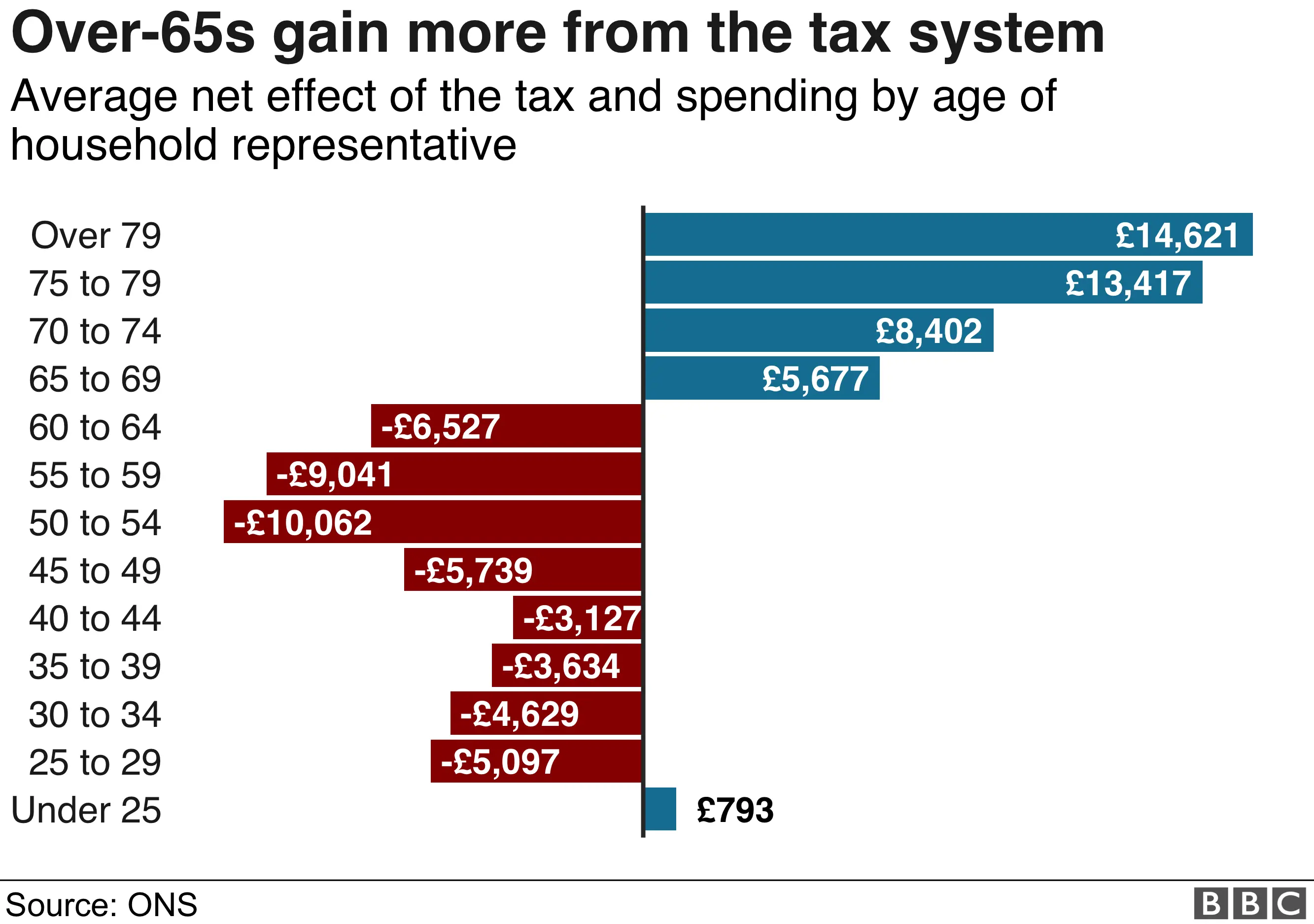'End pensioner benefits to help young', peers say
 Getty Images
Getty Images"Outdated" age-specific benefits for older people should be replaced with support for the young to "deliver a fairer society", say peers.
The Committee on Intergenerational Fairness urged ministers to focus on housing and training, rather than benefits like free TV licences.
Committee chair Lord True said failing to rebalance policies could risk the "strong bond" between the generations.
But campaigners warned against changes, saying pensioner poverty was rising.
The committee - made up of Labour, Tory, Liberal Democrat and crossbench peers - issued a raft of recommendations, both to "retain the supportive relationship between generations" and to plan for the "100-year life" that younger people can expect to become the norm.
Suggested improvements include:
- Ensuring local authorities have specific planning policies to meet the housing needs of younger and older people
- Increasing training funding for young people who don't go to college or university
- Making sure those who work for the "gig" economy - getting paid per "gig" - have the same rights as other workers
The peers also propose changes to benefits for older people, including:
- Removing the triple lock for pensions, which raises the basic state pension by the rate of average earnings increases, inflation or 2.5% - whichever is higher
- Phasing out free TV licences based on age (currently free for over-75s) and ensuring the government decides on whether to give free licences based on household income
- Limiting free bus passes for the over-65s and winter fuel payments until five years after retirement age

Conservative peer Lord True said: "Both young and older people recognise the contribution the other makes and the challenges they face.
"However, there is a risk that those connections could be undermined if the government does not get a grip on key issues such as access to housing, secure employment and fairness in tax and benefits."

'The 100-year life'
 PA
PALife expectancy in the UK is currently 82.9 years for women and 79.2 years for men.
But with technological revelations, medical breakthroughs and societal shifts, it is thought that an age expectancy of 100 is not far away.
While living a healthy life for longer may appeal, it changes the way governments will need to prepare.
The London Business School says the current life stages of education (between the ages of five and 21), work (22-65) and retirement (65+) will cease to exist.
This means people may need to retrain, work for longer or need more care in their later stages of life.
As a result, many aspects of the government's remit will be affected, such as housing, health, education and pensions, and the committee says its recommendations will help them get ready.

The committee said intergenerational unfairness was being "exacerbated" by an ageing population, the 2008 global financial crisis and successive government policies that have failed to consider the issue.
According to its report, many pensioner households are now, on average, better off than their working age counterparts, both in terms of income after housing costs and overall household wealth.
"We are calling for some of the outdated benefits based purely on age to be removed," said Lord True.
He said the universal benefits were "justified when pensioner households were at the bottom of the income scale, but that is no longer the case".
Allow Google YouTube content?
However, The Centre for Ageing Better warned against "tinkering" with existing benefits, saying pensioner poverty was increasing for the first time in a decade.
"This is not about old versus young," said its chief executive, Dr Anna Dixon.
"It is about creating a society where everyone, regardless of income or background, can enjoy every stage of life.
"Headline-grabbing proposals like abolishing free TV licences based on age risk distracting from the big structural changes needed across housing, work and communities."
But David Sinclair, director of the International Longevity Centre, said policymakers had failed the young.
He said: "Our approach to public policy at the moment risks pitching younger against older people and inadvertently and unhelpfully undermining the intergenerational contract.
"Today's young are tomorrow's older people."
